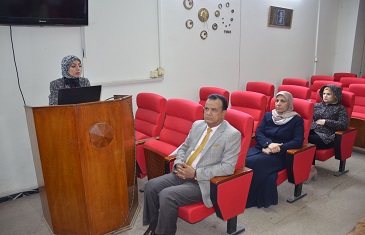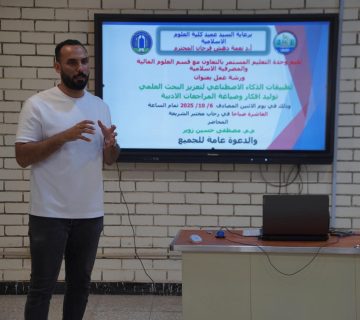The Department of Life Sciences, in collaboration with the Continuing Education Unit at the College of Science, University of Baghdad, organized a lecture titled “Clostridium Botulinum and Botox.” The event was attended by postgraduate students and researchers specializing in medicine and nutrition.
The lecture aimed to raise awareness about Botox treatments, emphasizing that botulinum toxin is one of the most lethal toxins known to humanity. It is produced by the bacterium Clostridium botulinum, which is responsible for the spoilage of canned foods.
The presentation explored the adverse effects of Botox, including sensitivity to light, double vision, and eye irritation. It also addressed potential complications arising from its use in treating overactive bladder, such as urinary tract infections or a burning sensation during urination.
The lecture highlighted that Botox is a substance derived from Clostridium botulinum, a bacterium known for causing foodborne botulism. However, in carefully controlled doses, medical professionals utilize it for temporary, non-surgical treatments of certain medical conditions, with its most widespread application being in cosmetic procedures.










